
How to Confront Conflict in the Workplace
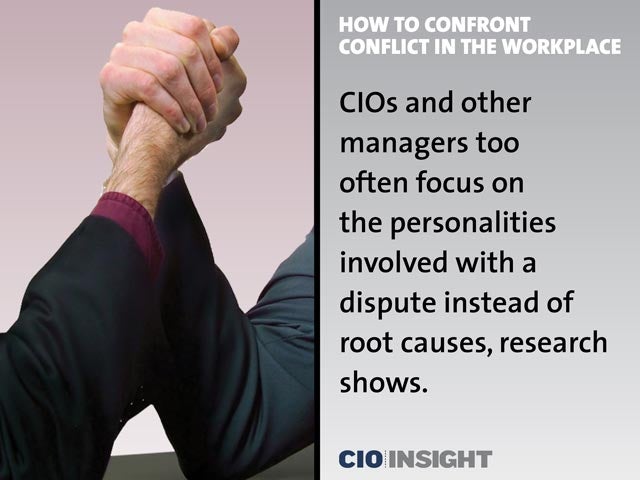 How to Confront Conflict in the Workplace
How to Confront Conflict in the Workplace
CIOs and other managers too often focus on the personalities involved with a dispute instead of root causes, research shows.
 Workplace Conflict Myths: Conflict Is Always Something to Avoid
Workplace Conflict Myths: Conflict Is Always Something to Avoid
When problems are dismissed or ignored, they fester and grow into bigger problems.
 Workplace Conflict Myths: Finding the Culprit Should Be Fairly Obvious
Workplace Conflict Myths: Finding the Culprit Should Be Fairly Obvious
Only if you make assumptions—which could make a bad situation worse. Proceed to resolve heated disputes in a fair, impartial manner.
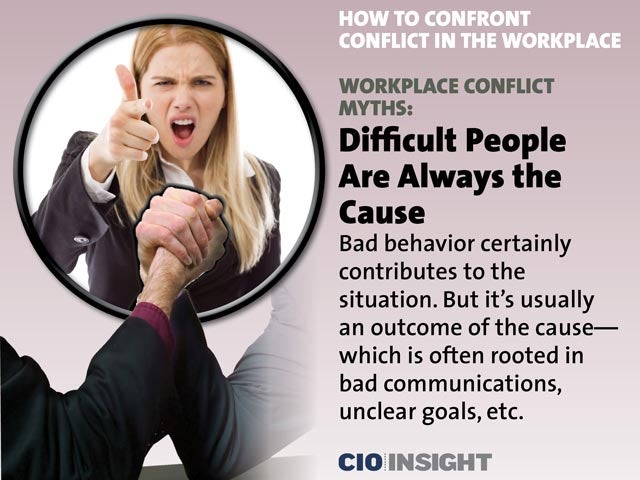 Workplace Conflict Myths: Difficult People Are Always the Cause
Workplace Conflict Myths: Difficult People Are Always the Cause
Bad behavior certainly contributes to the situation. But it’s usually an outcome of the cause—which is often rooted in bad communications, unclear goals, etc.
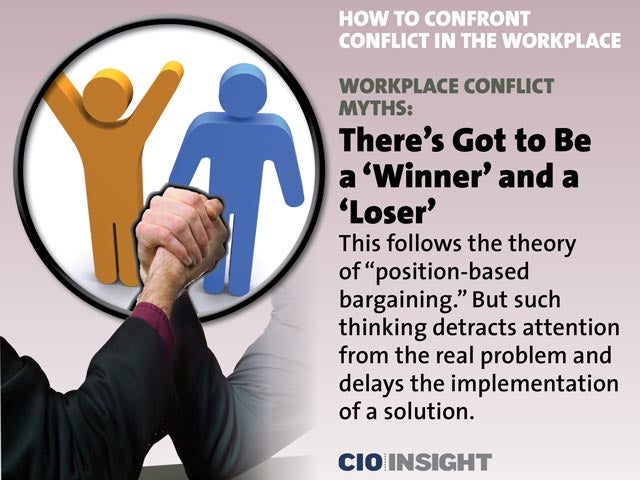 Workplace Conflict Myths: There’s Got to Be a ‘Winner’ and a ‘Loser’
Workplace Conflict Myths: There’s Got to Be a ‘Winner’ and a ‘Loser’
This follows the theory of “position-based bargaining.” But such thinking detracts attention from the real problem and delays the implementation of a solution.
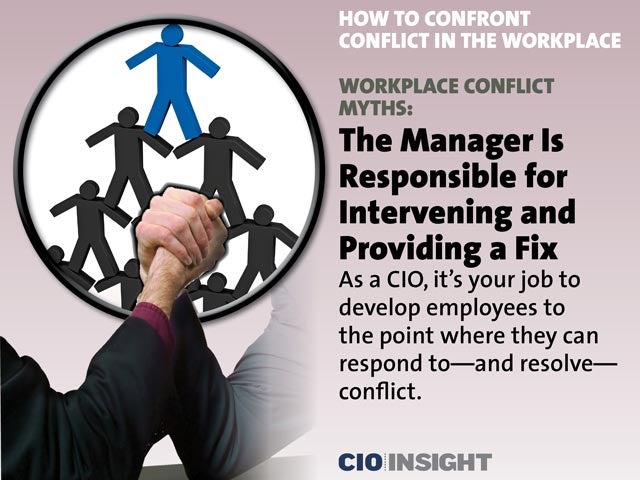 Workplace Conflict Myths: The Manager Is Responsible for Intervening and Providing a Fix
Workplace Conflict Myths: The Manager Is Responsible for Intervening and Providing a Fix
As a CIO, it’s your job to develop employees to the point where they can respond to—and resolve—conflict.
 Workplace Conflict Best Practices: Chill Out
Workplace Conflict Best Practices: Chill Out
If you get agitated in confronting conflict, everyone else will get agitated. If you’re at ease, you’ll defuse tension and start a constructive dialogue.
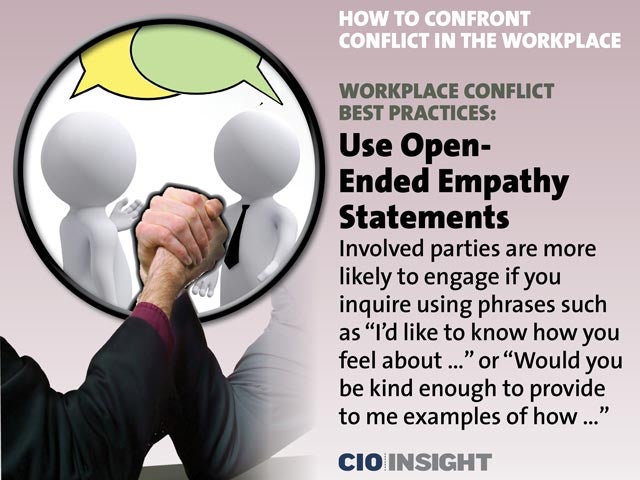 Workplace Conflict Best Practices: Use Open-Ended Empathy Statements
Workplace Conflict Best Practices: Use Open-Ended Empathy Statements
Involved parties are more likely to engage if you inquire using phrases such as “I’d like to know how you feel about …” or “Would you be kind enough to provide to me examples of how …”
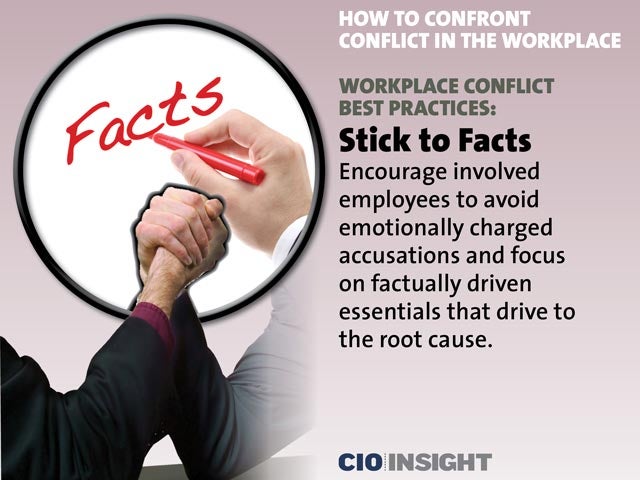 Workplace Conflict Best Practices: Stick to Facts
Workplace Conflict Best Practices: Stick to Facts
Encourage involved employees to avoid emotionally charged accusations and focus on factually driven essentials that drive to the root cause.
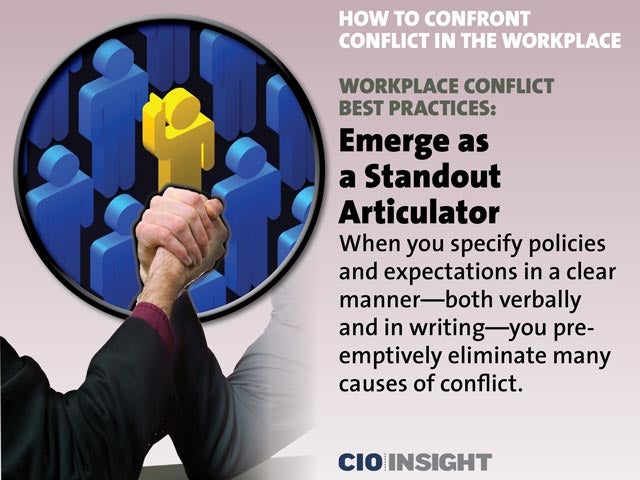 Workplace Conflict Best Practices: Emerge as a Standout Articulator
Workplace Conflict Best Practices: Emerge as a Standout Articulator
When you specify policies and expectations in a clear manner—both verbally and in writing—you pre-emptively eliminate many causes of conflict.
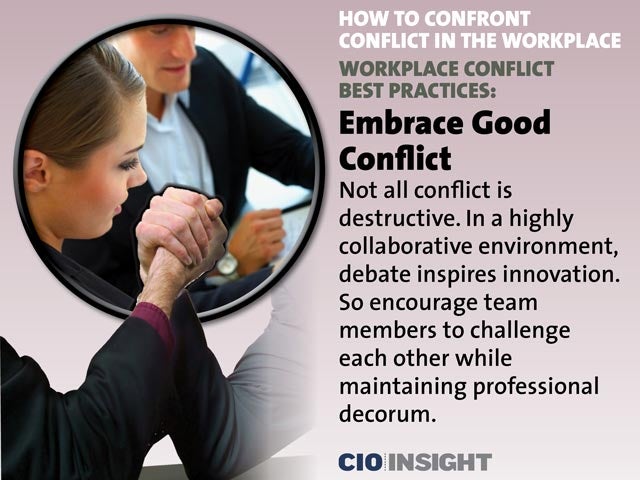 Workplace Conflict Best Practices: Embrace Good Conflict
Workplace Conflict Best Practices: Embrace Good Conflict
Not all conflict is destructive. In a highly collaborative environment, debate inspires innovation. So encourage team members to challenge each other while maintaining professional decorum.